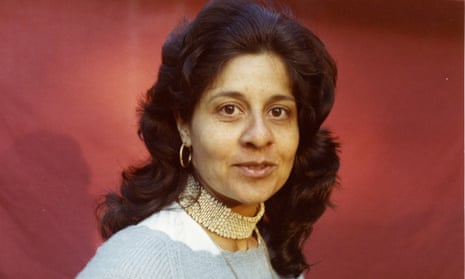My wife, Lois Carter, who has died of cancer aged 74, made a substantial contribution to providing reliable information on medical care to some of the poorest parts of Africa. She also helped publicise the lifelong impacts on children of maternal alcoholism and drug abuse.
She was born in Moradabad, India, to an Anglo-Indian family, the fifth of six children of Robin Carter, fitter-in-charge of a railway workshop in Bareilly, Uttar Pradesh, and his wife, Gwen. After India gained independence, Anglo-Indians were reviled, and her family came to the UK. They were greeted with racism and verbal abuse; her parents struggled to find jobs. Lois’s childhood was one of poverty and anger: her embittered father physically abused her brothers.
She escaped to university in Leeds, where she studied English with history of art, and in 1971 joined International Voluntary Service as a teacher in rural Cameroon. She made an abiding impression. Visiting Douala some years later, she realised nervously that she had no visa. A foreigner without a visa could be arrested for attempting illegal entry to the country. The immigration clerk studied her passport with a frown of concentration. Suddenly he smiled broadly and exclaimed, “Miss Carter! Welcome back!” He was one of her ex-pupils.
Lois went on to join the overseas staff of IVS, and then to be the first field coordinator in the British Volunteer Programme, covering Botswana, Lesotho and Swaziland. Soon other volunteer agencies also appointed field coordinators, allowing them to branch out from teaching the elite to genuine community-based projects. Lois and I met at a briefing weekend in 1973 before I went to Lesotho to work as an IVS volunteer. My work as a water engineer took me to Mozambique, where Lois worked on a literacy programme for construction workers.
After we returned to Britain, in 1984, we married and went on to adopt three children. The two youngest suffered from fetal alcohol syndrome, a deeply disruptive condition little understood in the 1990s. When we asked educational psychologists and psychiatrists for advice, few listened: instead, each tried to fit our problem into their paradigms. Lois wrote about her experiences in the press, worked with Nofas (the National Organisation for Fetal Alcohol Syndrome), a charity that supports families with such children, and shared her knowledge with teachers and other professionals.
In London she had joined Acord, a European NGO, running its work in Rwanda, Somalia and Tanzania, and later became a canny fundraiser for a small local charity, Talc (Teaching Aids at Low Cost). She raised £1m for Talc’s work, including a record-breaking Radio 4 Appeal.
But her greatest achievement was editing and publishing the Portuguese edition of Where There is No Doctor (Onde Nao Ha Medico, 2009). This compendium of concise, reliable information for health workers and doctors in isolated villages has undoubtedly saved thousands of lives. She was rightly proud of it
She is survived by our children and me, and by a brother.
